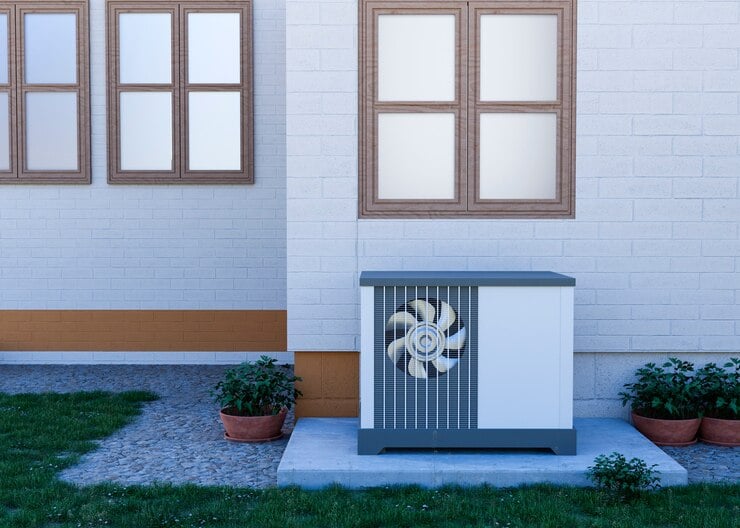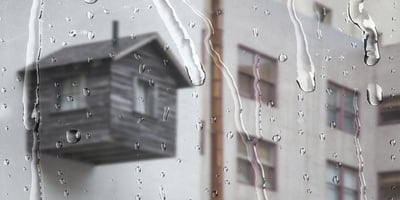How Long Should Your Air Conditioner Take to Cool Your House? Here What You Need to Know
As the sun beats down on a scorching summer day or the heat lingers on a balmy evening, the comforting hum of your air conditioner springs to life, promising a few hours of relief from the sweltering heat. But have you ever wondered just how long it should take for your trusty AC to work its magic and transform your home into a cool, comfortable oasis?
Understanding the time it takes for your air conditioner to cool your house is more than just a matter of curiosity; it's a key to unlocking optimal comfort and efficiency. Whether you're seeking refuge from a heatwave, preparing for a relaxing evening, or simply trying to manage your energy consumption, grasping the nuances of cooling times is essential.
In this exploration, we'll delve into the factors that influence how quickly your air conditioner can chill your living spaces, offering insights and practical tips to ensure that your home becomes the haven of comfort you desire. So, let's embark on this journey of temperature, technology, and timing, and discover how long your air conditioner should truly take to cool your house – because comfort, after all, is just a cool breeze away.
Factors Influencing Cooling Time
When it comes to the time it takes for your air conditioner to cool your house, numerous factors come into play. Understanding these factors can help you manage your expectations and optimize your cooling experience. Here are the key elements that influence cooling time:
- Room Size: The size of the room or area you want to cool is a crucial factor to set temperature down. Larger rooms require more time to cool down compared to smaller spaces. A larger volume of air needs to be treated to achieve the desired temperature.
- Outdoor Temperature: The temperature outside your home can significantly impact cooling time of central air. On extremely hot days, your AC may need more time to combat the intense heat and bring indoor temperatures to a comfortable level. Conversely, milder outdoor temperatures may allow for quicker cooling.
- Insulation Quality: The level of insulation in your home plays a vital role in cooling efficiency. Well-insulated homes retain cool air better, reducing the workload on your AC system. In contrast, poor insulation can result in heat infiltration, making cooling take longer.
- Efficiency of Your AC Unit: The efficiency and capacity of your air conditioner are essential factors. A higher-efficiency AC unit can cool your home more quickly and effectively. Units with variable-speed compressors or multi-stage cooling offer precise control over cooling times.
- Thermostat Settings: The temperature settings on your thermostat determine the target temperature and how long the AC runs. Lowering the thermostat significantly below your desired temperature won't cool your home faster; it only increases energy consumption.
- Airflow and Ductwork: Proper airflow and well-maintained ductwork are critical for efficient cooling. Clogged filters, dirty vents, or blocked ducts can restrict airflow, block air flow and prolong cooling times.
- Shade and Solar Gain: Direct sunlight and solar gain from windows can increase indoor temperatures. Shading windows with blinds, curtains, or outdoor vegetation can reduce solar heat gain and shorten cooling times.
- Heat-Generating Appliances: The presence of heat-generating appliances (e.g., ovens, stoves, computers) can add to the indoor heat load. Minimizing their use during peak cooling times can help achieve quicker cooling.
- Maintenance and Cleanliness: Regular maintenance of your AC unit is essential to ensure it operates at peak efficiency. A clean filter, well-maintained condenser coils, and properly lubricated fans contribute to more air flow and faster cooling.
- Location and Design: The layout and design of your home can affect cooling times. Multi-story homes may require more time for the cool air to reach upper floors. Properly placed supply and return vents and air ducts can help distribute cool air efficiently.
Understanding and managing these factors can help you make informed decisions to optimize your air conditioner's cooling time. Whether you're looking to cool a house down quickly on a scorching day or maintain a comfortable indoor environment efficiently, considering these elements can make a significant difference in your cooling experience.
Calculating Cooling Time
Estimating or calculating the expected cooling time for your specific situation can help you plan your comfort needs effectively. While various factors influence cooling time, you can use a general guideline based on room size and typical AC capacity to get a rough estimate. Here's how to calculate cooling time:
- Determine Your Room's Size: Measure the dimensions of the room you want to cool. Calculate the room's square footage by multiplying its length by its width. For irregularly shaped rooms, divide them into smaller rectangles, calculate the square footage for each, and add them together.
- Check Your AC's Capacity: Look up your own air conditioner unit's cooling capacity, which is usually measured in BTUs (British Thermal Units) per hour. This information can be found on the unit's label or in the user manual. Note that the higher the BTU rating, the greater the cooling capacity.
- Calculate the Cooling Load: Estimate the cooling load required to cool the room by using a rule of thumb. A common guideline is that you need approximately 20 BTUs per square foot of space. Multiply the square footage of the room by 20 to determine the required cooling load.
- Calculate Cooling Time: Divide the cooling load by the AC's capacity (in BTUs per hour). This calculation will give you an estimate of how many hours it should take for your air conditioner to cool the room to the desired temperature.
Example:
- Let's say you have a room that is 300 square feet in size, and your AC unit has a cooling capacity of 6,000 BTUs per hour.
- Cooling Load = 300 sq. ft. x 20 BTUs/sq. ft. = 6,000 BTUs
- Cooling Time = Cooling Load (6,000 BTUs) ÷ AC Capacity (6,000 BTUs/hr) = 1 hour
In this example, it should take approximately one hour for your air conditioner to cool the 300-square-foot room to the desired temperature, assuming ideal conditions. However, keep in mind that real-world conditions, such as insulation quality, outdoor temperature, and the efficiency of your AC unit, can affect air conditioner run actual cooling times.
Tips for Faster Cooling
To expedite the cooling process and improve the efficiency of your air conditioner, consider implementing these practical tips:
- Set the Thermostat Strategically: When you want to cool your home quickly and waste energy less, set the thermostat to your desired temperature. Contrary to the misconception that lowering the thermostat significantly will cool the space faster, it's best to choose a comfortable but not excessively low temperature. This approach prevents the AC from overworking and reduces energy consumption.
- Use Ceiling Fans: Ceiling fans can complement your air conditioner by distributing cool air more effectively. Make sure the ceiling fan itself is set to rotate counterclockwise during the summer to create a cooling breeze. This can help you feel cooler without lowering the thermostat too much.
- Close Curtains and Blinds: Sunlight entering your home can significantly increase indoor temperatures. Keep curtains and blinds closed during the hottest parts of the indoor and outdoor temperatures during the day to block out the sun's rays. This reduces the heat gain, allowing your AC to work more efficiently.
- Limit Heat Sources: Reduce the use of heat-generating appliances such as ovens, stoves, and incandescent lights during the hottest times of the day. These appliances can add to the indoor heat load, making cooling a cool house take longer.
- Optimize Airflow: Ensure that vents and registers are unblocked and open. Proper airflow is essential for efficient cooling. Remove furniture or obstructions that may hinder air circulation within your home.
- Schedule Regular AC Maintenance: Regular maintenance, including cleaning or replacing air filters, checking for refrigerant leaks, and inspecting ductwork, helps your AC run smoothly and efficiently. Neglecting maintenance can result in reduced cooling performance and longer cooling times.
- Consider Smart Thermostats: Smart thermostats offer precise temperature control and scheduling options. You can program them to start cooling your home before you arrive, ensuring comfort upon your return without wasting energy when no one is home.
- Seal Leaks and Insulate: Address any gaps or leaks in your home's insulation and seal around windows and doors. Proper insulation and sealing prevent cool air from escaping cold air, and hot air from infiltrating, improving cooling efficiency.
- Upgrade to an Energy-Efficient AC Unit: If your current AC unit is outdated or inefficient, consider upgrading to a more energy-efficient model. Modern air conditioners often cool spaces faster while consuming less energy.
- Shade Outdoor Units: Ensure that your outdoor AC condenser unit is in a shaded area. A shaded unit operates more efficiently than one exposed to direct sunlight.
By implementing these tips, you can significantly reduce cooling time, improve comfort, and maximize the efficiency of your air conditioner. Keep in mind that these strategies are most effective when combined and tailored to your specific circumstances.
Seasonal Variations
The ability to cool your home quickly varies significantly from season to season, presenting unique challenges and considerations as the weather changes. Let's delve into the factors that influence cooling time during different seasons:
1. Summer Heat:
- In the peak of summer, when temperatures soar, the demand for cool indoor air intensifies. The extreme heat outside means your air conditioner must work harder to achieve a comfortable indoor temperature.
- Cooling time during summer can be longer due to the substantial temperature differential between the scorching outdoor environment and your desired indoor climate.
2. Transition Seasons (Spring and Fall):
- During transitional seasons, when the weather is neither extremely hot nor cold, cooling time tends to be shorter. Mild outdoor temperatures reduce the workload on your air conditioner.
- Opening windows for natural ventilation during spring and fall can help maintain a comfortable indoor environment without relying heavily on your AC.
3. Challenges of Cooling During Extreme Heat:
- Cooling a house quickly during a heatwave poses challenges. AC units may struggle to keep up with the relentless heat, and cooling time can extend as the demand for cooling intensifies.
- In regions with high humidity, the cooling process can be less efficient, as the AC needs to remove moisture from the air before achieving noticeable temperature relief.
4. Transitioning Between Seasons:
- Transitioning from one season to another can present a conundrum for cooling. As outdoor temperatures fluctuate, you may find it challenging to strike the right balance between comfort and efficiency.
- It's essential to adjust your thermostat settings and cooling strategies to align with the changing weather patterns. Using fans or natural ventilation can be effective during transitional periods.
5. Efficient AC Units:
- Investing in an energy-efficient air conditioning unit can mitigate some of the challenges associated with seasonal variations. Modern AC systems often have features that enable faster cooling while consuming less energy.
6. Proper Maintenance:
- Regular maintenance of your AC unit is crucial year-round but becomes particularly important during extreme heat or when transitioning between seasons. A well-maintained unit operates efficiently and can help achieve faster cooling times.
Conclusion
In our exploration of how long it takes for your air conditioner to cool your house and the factors that influence this timeframe, we've unveiled essential insights for achieving optimal comfort and efficiency in your home's cooling and air conditioning system itself.
By understanding these factors and implementing practical tips, you can optimize your air conditioning system's performance, reduce cooling time, and maintain a comfortable indoor environment year-round. Whether you're seeking quick relief from a heatwave or efficiently transitioning between seasons, these insights empower you to make informed decisions for a cooler, more comfortable home.



































.webp?width=836&height=161&name=blog-banner-neamob%20(1).webp)




.jpg?height=200&name=photo_2023-12-04_19-16-57%20(1).jpg)